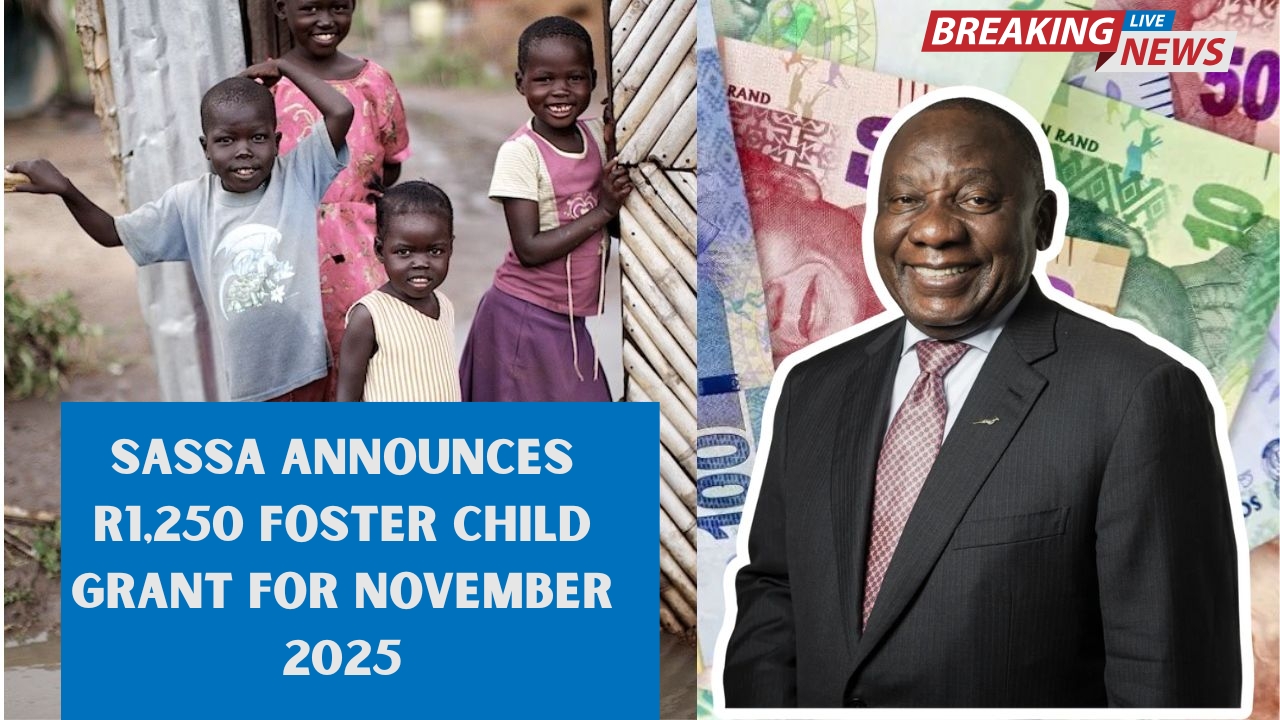The South African Social Security Agency (SASSA) has confirmed that the Foster Child Grant for November 2025 will be R1,250 per child. This increase is designed to assist foster parents and guardians who provide essential care and financial support to children in foster care. The grant helps cover important expenses such as groceries, school supplies, clothing, and other daily necessities, easing the burden on families raising foster children.
Foster Child Grant Qualifications
To qualify for the Foster Child Grant, applicants must meet specific eligibility criteria set by SASSA. The child must be under the age of 18 and placed in your care through a court order or a recognized child welfare agency. The foster child must reside with you, and you must comply with SASSA’s general social grant policies and regulations.
- The child must be legally placed in your care through a foster care order or social service placement.
- The child must live with you full-time under the terms of the foster care agreement.
- Both biological and non-biological caregivers can apply, provided the legal fostering documents are in place.
How to Apply for the Foster Child Grant
Applications for the Foster Child Grant can be made in person or online. Visit your nearest SASSA office with the required documents or apply via the SASSA online portal for faster processing.
- Required Documents:
- Certified copy of your ID or passport
- Child’s birth certificate or ID
- Proof of foster care placement (court order or child welfare documentation)
- Proof of residence
- Submit the application at your local SASSA office or upload documents on the online application portal.
- Track your application progress and respond promptly to any SASSA requests for additional information.
Payment Schedule – November 2025
According to the official SASSA payment schedule, the Foster Child Grant for November 2025 will be paid out on the first working day of November. Beneficiaries will receive R1,250 per child. Payments are made either directly into recipients’ bank accounts or made available at cash pay points and partner retailers.
Caregivers are advised to ensure that all contact details and banking information on record with SASSA are up to date to prevent any delays in receiving payments.
Additional Support Measures
In some provinces, the Foster Child Grant is linked with additional social benefit programs that offer extended support such as:
- Educational assistance and school fee support
- Healthcare subsidies for foster children
- Access to counselling and social worker services
Foster parents are encouraged to enquire about these programs when applying or renewing their grant, as they can provide added relief and community-based support.
What Caregivers Should Know
- Always renew your grant on time to avoid interruptions in payments.
- Respond to all SASSA requests for documentation or updates.
- Keep copies of your court order and foster care documentation for verification.
- Seek advice at SASSA offices or via the SASSA helpline if you experience payment issues or delays.
Quick Summary Table
| Item | Detail |
|---|---|
| Grant Amount | R1,250 per foster child |
| Eligible Recipients | Legal foster parents or guardians |
| Payment Schedule | Early November 2025 |
FAQs
Q1: How do I apply for the Foster Child Grant?
You can apply at your nearest SASSA office or online via the SASSA portal. Be sure to bring or upload your court order, child’s birth certificate, and your ID.Q2: When will the November 2025 grant be paid?
Payments will begin on the first working day of November 2025, following SASSA’s national payment schedule.Q3: Can non-biological caregivers apply?
Yes. As long as there is a valid court order or foster care placement document, non-biological caregivers are eligible to apply for the grant.The R1,250 Foster Child Grant for November 2025 provides essential financial relief to foster families across South Africa, helping caregivers ensure that foster children receive the care, education, and stability they deserve.


